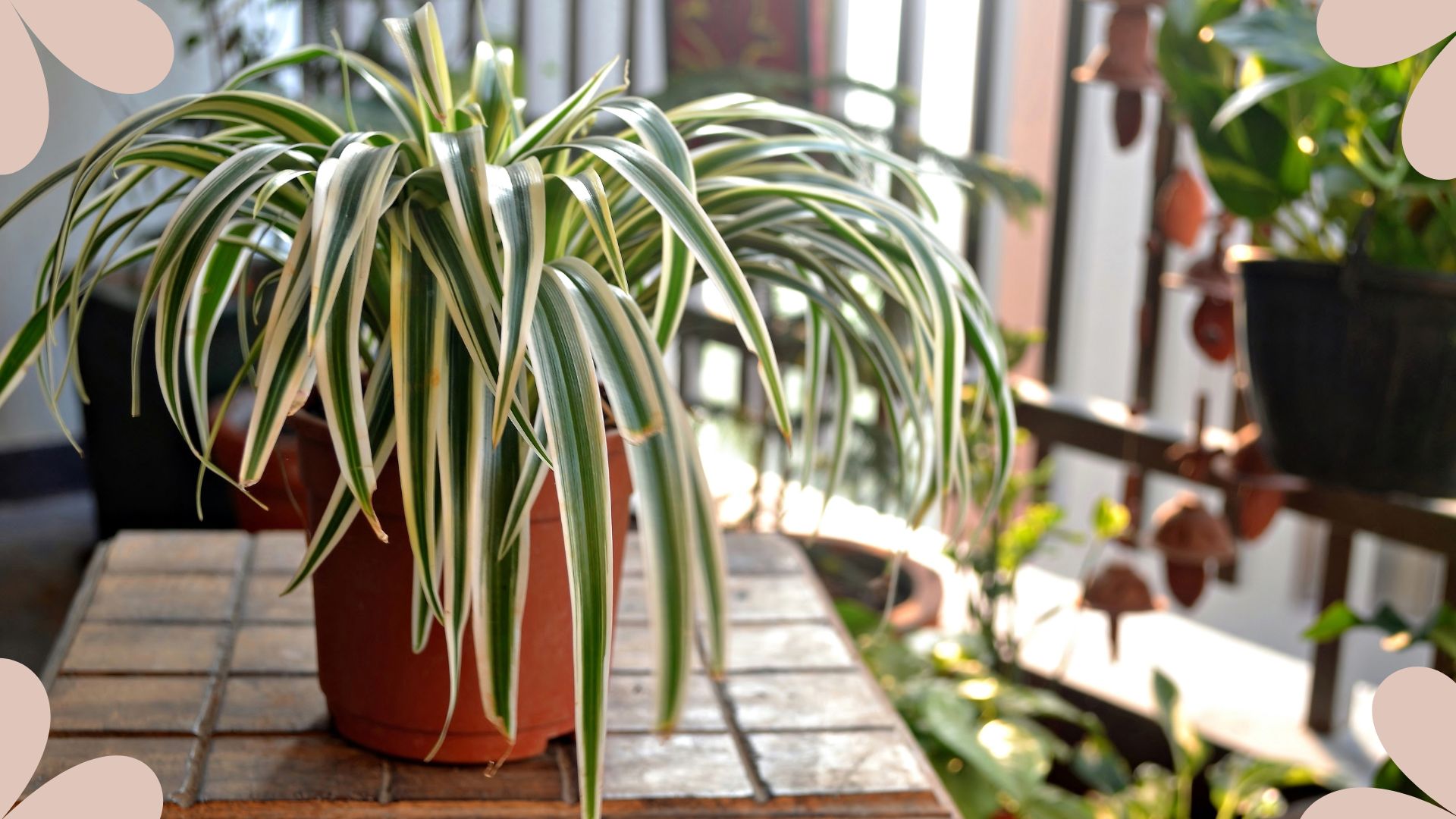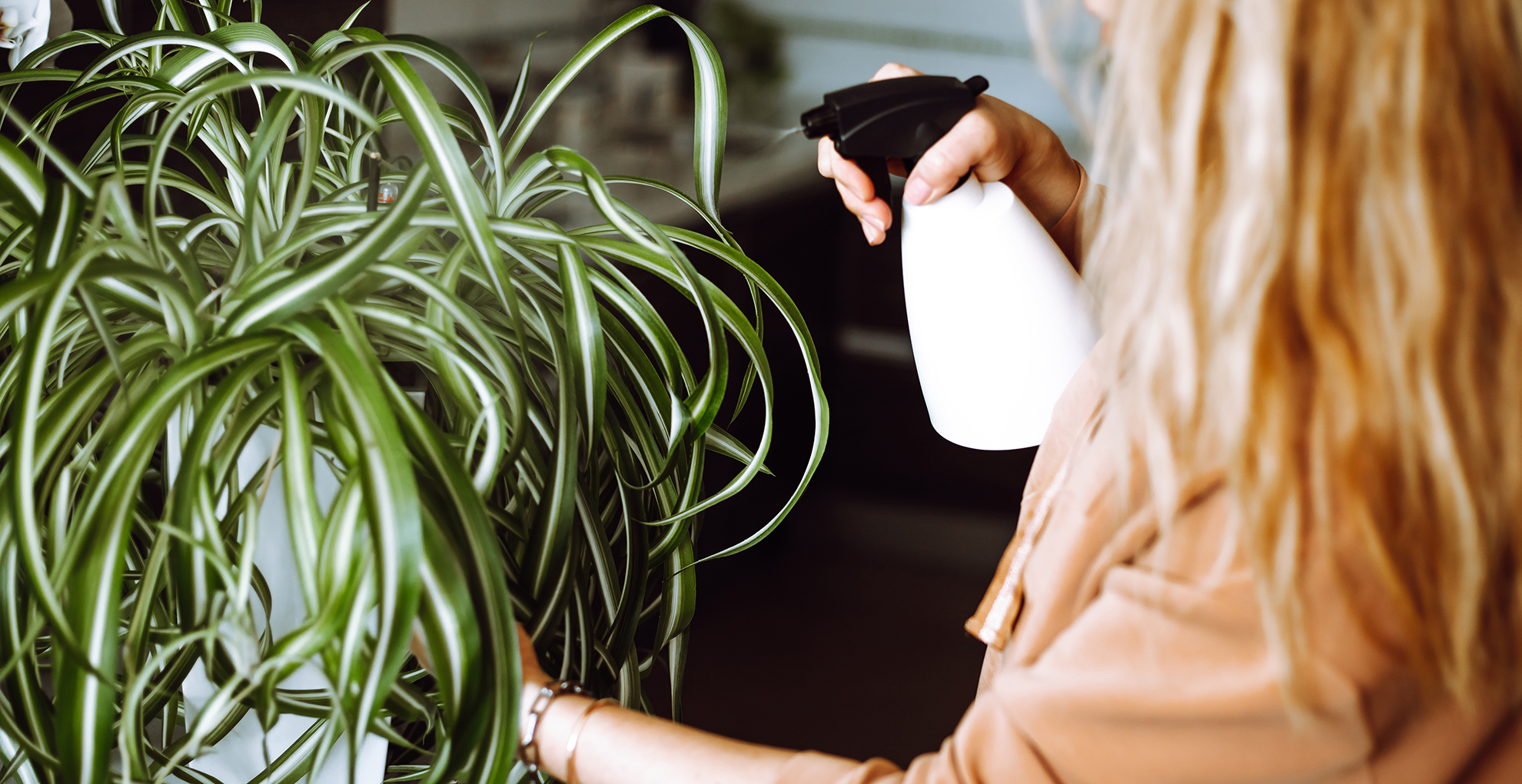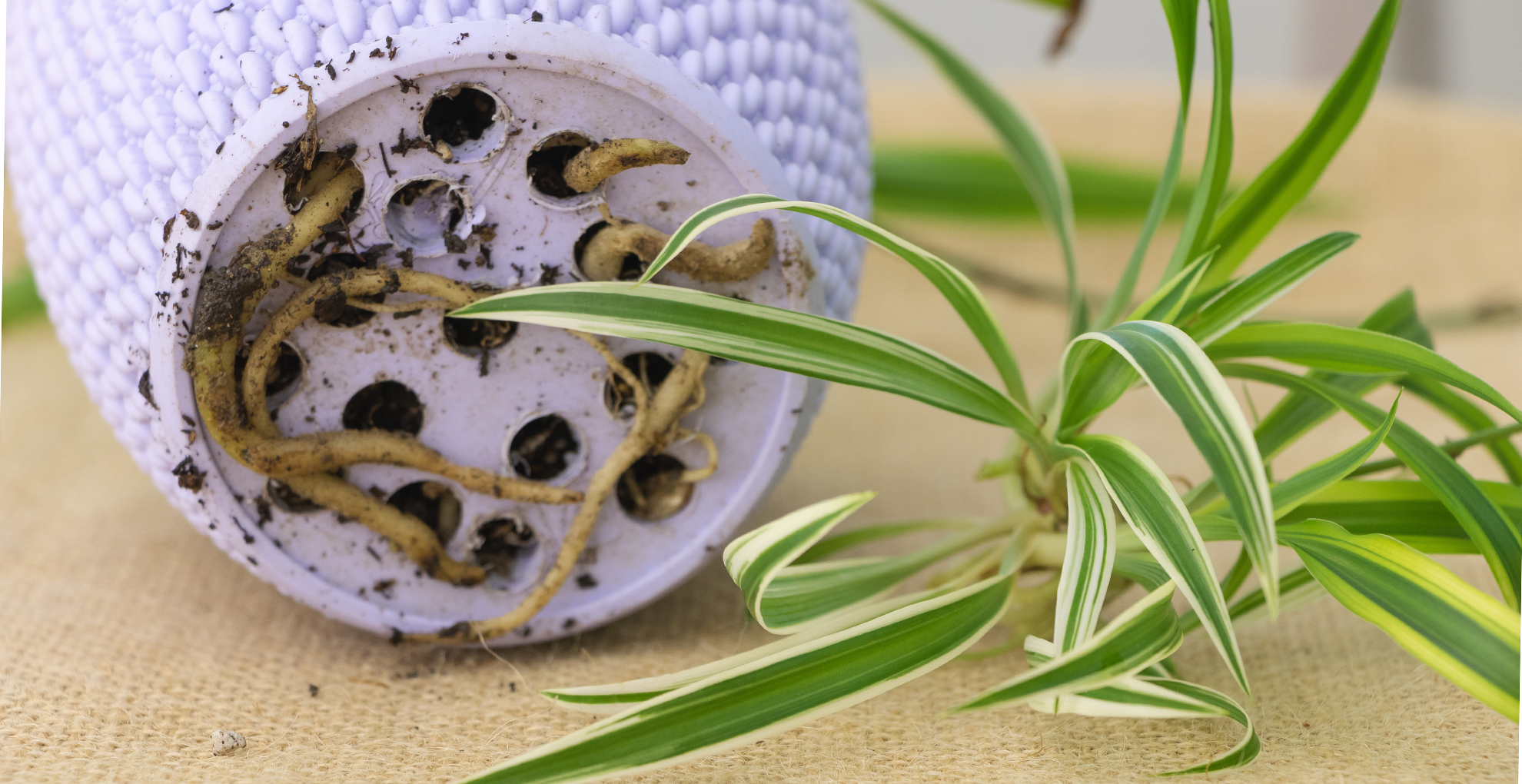
Looking after this sun-loving plant may seem pretty easy but there are some conditions you may want to keep an eye on to ensure your spider plant continues to thrive.
Luckily, spider plants are one of the easiest houseplants to keep alive and shouldn't cause you too much stress to look after. Their maintenance is fairly straightforward, especially if you already know how often to water your houseplants and how to repot a plant.
However, to truly get the most out of this unruly plant, you'll want to remember the following expert care instructions.
How to care for a spider plant
Unlike the ways you need to care for an orchid, spider plants are quite an independent species. They're one of the best plants to help with humidity in every room and are great for air purification too. So it's super important to look after them and keep them functioning well.
1. Avoid overwatering

One of the most common houseplant mistakes is overwatering. And whilst you may think overwatering can't be all that bad, it can lead to several problems for your plant's health with root rot being the worst.
Claire Bishop, Senior Buyer for garden centre chain Dobbies, says: “When it comes to caring for your spider plant, make sure you don’t overwater it, and only water when the soil feels dry to the touch."
Claire also points out that how frequently you water your plant will depend on the temperature of your home, but she recommends not watering your spider plant more than once a week.
A light sprayer, according to Monty Don is the 'single most useful thing' you can do to improve your houseplants.
2. Monitoring heat and humidity
Whether you're a devotee to one of the best dehumidifiers or not, taking too much moisture out of the air where your plant lives can cause major issues for it. Especially a moisture-loving species like the spider plant.
"Keep the temperature between 15-24°C and avoid placing the plant in drafty areas or near heating vents," explains Nadezhda Yaneva, gardening expert at Fantastic Gardeners.
"Spider plants enjoy moderate humidity but can adapt to varying humidity levels. If the air is very dry, misting the leaves occasionally can help," she continues.
Investing in a humidifier or a plant mister will make a huge difference in your plant's health and growth.
3. Feeding with fertiliser
You may think that fertilising plants is only important when caring for orchids or a bonsai tree, but even low-maintenance plants need a little extra help sometimes.
Nadezhda explains the method behind feeding a spider plant, she says, "Fertilise the plant with a balanced, water-soluble fertiliser every 4-6 weeks during the growing season (spring and summer) and keep in mind that too much fertiliser can lead to brown tips on the leaves. Follow the recommended dosage on the fertiliser package."
4. Pruning
Pruning for houseplants is not quite as important as pruning buddleia or knowing how to prune lavender. However, there are some rules to pruning for your houseplant that will keep it not only looking its best but also help it grow to its full potential.
Nadezhda explains, "Trim off any yellow or brown leaves to keep the plant healthy and attractive, and prune the plant if it becomes too large or to shape it as desired. Spider plants produce small offshoots called spiderettes, which can be cut off and planted to grow new spider plants."
Cuttings are a great way of maximising your plant collection without spending more money, you can even do this as a budget garden idea with outdoor plants.
5. Pests
Pests are often a plant issue that is overlooked, even when dealing with some of the hardest houseplants to keep alive. They're a lot more common than you may realise and are a possible reason for health problems such as mould growing on your plant's topsoil.
According to Nadezhda, spider plants are usually safe from pests however, she explains they can occasionally attract aphids, spider mites, or scale. She says, "Treat infestations with insecticidal soap or neem oil and maintain good plant hygiene."
Keeping on top of pest prevention is also a key part of keeping your plant healthy while you're on holiday, preventing pests is always way easier than trying to get rid of them.
FAQs
How to repot a spider plant

Whilst you may know how to repot your houseplant, knowing when is the right time to repot them is a whole other condition especially when it comes to caring for a spider plant.
“You’ll know your spider plant needs repotting when its roots become visible above the soil and it looks like the plant is pushing itself out of its pot, " says Claire. “Yellow or brown leaves can also be a sign that your plant is outgrowing its container."
Take note of this if you're wondering why your orchid leaves are turning yellow or why peace lily leaves turn yellow.
There are a few steps you'll need to know when getting the job done. Claire explains, “When repotting your spider plant, it's important to choose a pot slightly larger than its current one, with good drainage holes.
To repot, gently remove your spider plant from its pot and loosen the roots before planting in fresh potting mix in the new container and watering well."
Now you've mastered your care routine for a spider plant why not challenge yourself and learn how to care for a Venus fly trap or how to care for a yucca plant to add to your collection? You might surprise yourself with how easily you can help these unique species thrive.







